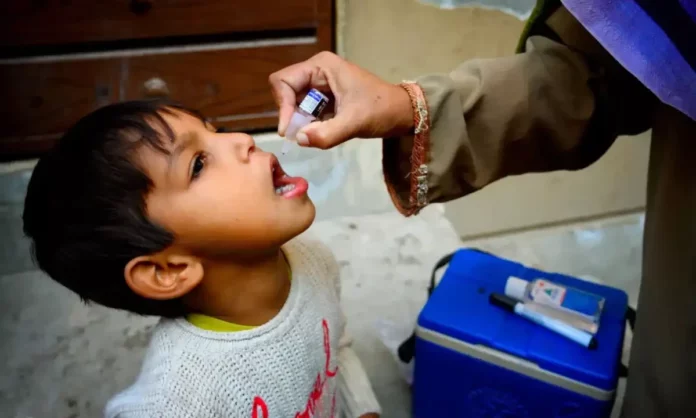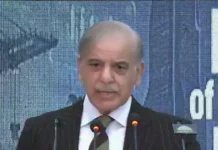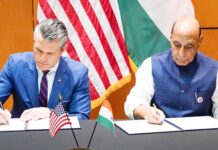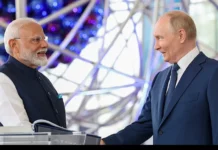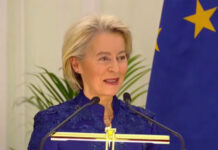ISLAMABAD: Pakistan’s Regional Reference Laboratory for Polio Eradication at the National Institute of Health (NIH) confirmed Pakistan’s 71st case of wild poliovirus type 1 (WPV1) for 2024, Geo News reported.
The case involves a young male child from Jacobabad, Sindh, with the onset of symptoms reported on December 27, 2024, Geo News reported on Tuesday.
This confirmation marked the fifth reported polio case from Jacobabad alone, underscoring ongoing challenges in the fight against the disease.
The national tally for WPV1 cases in 2024 now stands at 71, with Balochistan reporting the highest number at 27 cases, followed by 21 each from Sindh and Khyber Pakhtunkhwa, and one each from Punjab and Islamabad.
Pakistan’s health officials stressed that polio remains a paralysing disease with no known cure, emphasising the critical need for vaccination.
“Multiple doses of the oral polio vaccine and completion of the routine immunisation schedule for children under five are essential to building immunity against this devastating virus,” Geo News quoted a senior health official as saying.
The health authorities urged parents to ensure that all children under five receive the vaccine.
Earlier on January 10, Pakistan’s Regional Reference Laboratory for Polio Eradication confirmed the detection of wild poliovirus type 1 (WPV1) in a child from Karachi, Dawn reported.
The Regional Reference Laboratory for Polio Eradication at the National Institute of Health has confirmed the detection of wild poliovirus type 1 (WPV1) in a male child from Karachi’s East district. Quoting a lab official, Dawn reported that the case has been counted in 2024’s tally since the sample was collected in 2024.
The rise in polio cases marks a significant concern as Pakistan remains one of the last two countries in the world, alongside Afghanistan, where the polio virus continues to be endemic, the Dawn reported.
According to the Dawn, Polio remains a grave health challenge for Pakistan, despite global efforts to eradicate it. The persistence of the disease can be attributed to several obstacles, including security concerns in some areas, vaccine hesitancy, and the spread of misinformation that has hindered vaccination campaigns. These factors have delayed significant progress in eliminating polio from the country. (ANI)
Also Read: Polio cases in Pakistan continue to rise, tally reaches 69

